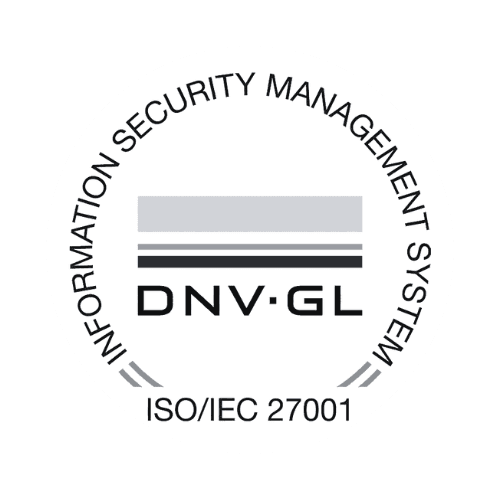Sé el primero en saberlo
Written by AI
Labor force development: How companies can promote employee qualifications
In an ever-evolving work environment, it is crucial for companies to continuously promote their employees' qualifications. The skills and knowledge of employees play a crucial role in the success and growth of a company. This article discusses various strategies and approaches to promote employee qualifications, as well as measuring the impact of qualification promotion programs and the challenges that companies face.
The importance of employee qualifications
To understand the importance of employee qualifications, it is important to have a comprehensive overview of what employee qualifications entail. Employee qualifications encompass both technical skills and personal attributes such as communication, teamwork, and problem-solving skills.
Employees with the right qualifications can handle a variety of tasks and are able to quickly adapt to changes in the work environment. They contribute to higher productivity and efficiency and are an important competitive advantage for companies.
Understanding employee qualifications
To effectively promote employee qualifications, companies must first develop a precise understanding of the existing qualifications in their workforce. This can be achieved through regular employee evaluations, interviews, and surveys.
By analyzing the strengths and weaknesses of their employees, companies can develop targeted training and development programs to strengthen existing qualifications and close any gaps.
Why are employee qualifications important?
Employee qualifications are important because they have direct impacts on the performance and success of a company. Well-qualified employees are able to efficiently perform their tasks and contribute to improving productivity. They are often more flexible and adaptable in facing new challenges and changes.
Furthermore, well-qualified employees enhance the quality of a company's products and services. They are able to better understand customer needs and effectively meet them. This contributes to customer satisfaction and increasing competitiveness.
Another aspect that underscores the importance of employee qualifications is the role of qualifications in promoting employees' professional development. By acquiring new skills and knowledge, employees can advance their careers and create new opportunities for growth and progress.
Companies that invest in the training and development of their employees also demonstrate a strong commitment to their workforce. This can increase employee retention and satisfaction, and help attract and retain talented professionals.
Strategies for promoting employee qualifications
To successfully promote employee qualifications, companies can apply various strategies and approaches. Here are some proven methods:
Training and development programs
Training and development programs are an effective method for improving employee qualifications. By providing training and development opportunities, companies can impart new skills and knowledge to their employees.
It is important to continuously review and adapt training programs to meet the changing needs and requirements of employees. Companies can offer internal training or engage external training providers, depending on the needs and resources.
The selection of the right training methods and content is crucial for the success of a training and development program. Companies should consider the individual learning needs and styles of their employees to develop tailored training offerings.
Mentoring and coaching
Mentoring and coaching provide individual support and guidance for employees in developing their qualifications. By engaging experienced employees or external mentors, employees can receive valuable feedback and guidance to further improve their skills and knowledge.
Mentoring and coaching can also help strengthen employees' confidence and motivation, as they know that they are supported by experienced professionals.
When implementing a mentoring and coaching program, companies should ensure to set clear goals and expectations. A structured approach with regular feedback sessions can enhance the effectiveness of the program and ensure that employees are continuously working on their professional development.
Role of corporate culture in labor force development
Corporate culture plays an important role in labor force development and promoting employee qualifications. A learning-promoting environment, in which employees are encouraged to develop further and acquire new skills, is crucial.
Corporate culture encompasses the values, norms, and behaviors prevailing in a company. It significantly shapes the work environment and influences how employees interact with each other and perceive their work. A positive and supportive corporate culture can help increase employee engagement and motivation.
Creating a learning-promoting environment
Companies can create a learning-promoting environment by encouraging open communication and motivating employees to share their knowledge and skills with others. This can be achieved through regular team meetings, training, or internal knowledge databases.
Furthermore, it is important for companies to offer mentoring programs in which experienced employees pass on their knowledge and experiences to younger colleagues. This promotes not only knowledge transfer but also strengthens the sense of belonging within the team.
Companies should also provide opportunities for employees to participate in conferences, training, and professional events to network with other professionals and gain new insights and best practices.
Promoting employee participation
Employee participation is an important aspect in labor force development. By involving employees in decision-making processes and projects, companies can benefit from the different skills and perspectives of their employees.
It is crucial for companies to maintain an open feedback culture in which employees can give and receive constructive feedback. This not only contributes to continuous process improvement but also strengthens trust and collaboration within the team.
Measuring the impact of qualification promotion programs
It is important to measure the impact of qualification promotion programs to ensure that they achieve the desired results. Here are some ways in which companies can evaluate the effectiveness of their programs:
Qualification promotion programs are an essential part of personnel development in companies. They aim to improve the skills and knowledge of employees to enhance their performance and satisfaction. In addition to the direct impact on employees, these programs can also have long-term benefits for the company itself, such as increased employee retention and improved market competitiveness.
Evaluating employee performance
By evaluating the performance of their employees before and after participating in qualification promotion programs, companies can measure progress and improvements. This can be done through regular performance evaluations, 360-degree feedback, or employee surveys.
By measuring employee performance, companies can also identify whether further actions are needed to improve qualifications or if specific training and development programs need to be adjusted.
Continuous monitoring of employee performance enables companies to identify individual strengths and weaknesses and create targeted development plans to fully utilize employees' potential.
Feedback and program improvement
Employee feedback is a valuable tool for measuring the effectiveness of qualification promotion programs. Companies can use feedback sessions, surveys, or informal conversations to gather the opinions and experiences of employees.
This feedback can then be used to make improvements to the programs and ensure that they meet the needs and expectations of employees.
An open dialogue between employees and leaders is crucial to create an environment where constructive feedback is valued and continuous improvements are pursued. Through transparent communication, companies can strengthen employee engagement and motivation, ensuring long-term success.
Challenges in promoting employee qualifications
Although promoting employee qualifications is crucial, there are also challenges that companies face. Here are two common challenges:
Resistance to change
Some employees may be resistant to changes related to their qualifications and work processes. This may stem from fear of the unknown or the effort involved in learning new skills.
To overcome this resistance, it is important to have open dialogues with employees and convey the benefits and opportunities of change. Examples of successful transitions and training programs can demonstrate how changes can lead to personal growth and career advancement.
Another approach to reduce resistance to change is to give employees the opportunity to contribute their own ideas and suggestions. This can increase their engagement and motivation and help them see changes as opportunities for innovation and development.
Time and resource management
Developing employee qualifications requires time and resources. Companies must ensure that they allocate sufficient resources for training programs, mentoring and coaching, and program evaluation.
It is important to efficiently utilize employees' time and ensure that training and development are planned to minimize production downtime. Individual needs and availabilities of employees should also be taken into account.
Effective time and resource management also involves regular review and updating of training programs to ensure that they meet current industry requirements and trends. Companies should also consider involving external experts or trainers to provide employees with a broader range of knowledge and perspectives.
Overall, labor force development and promoting employee qualifications is an ongoing task for companies. By investing in training and development, creating a learning-promoting corporate culture, and measuring the impact of their programs, companies can ensure that their employees possess the necessary skills and knowledge to meet the challenges of the ever-changing work environment.








